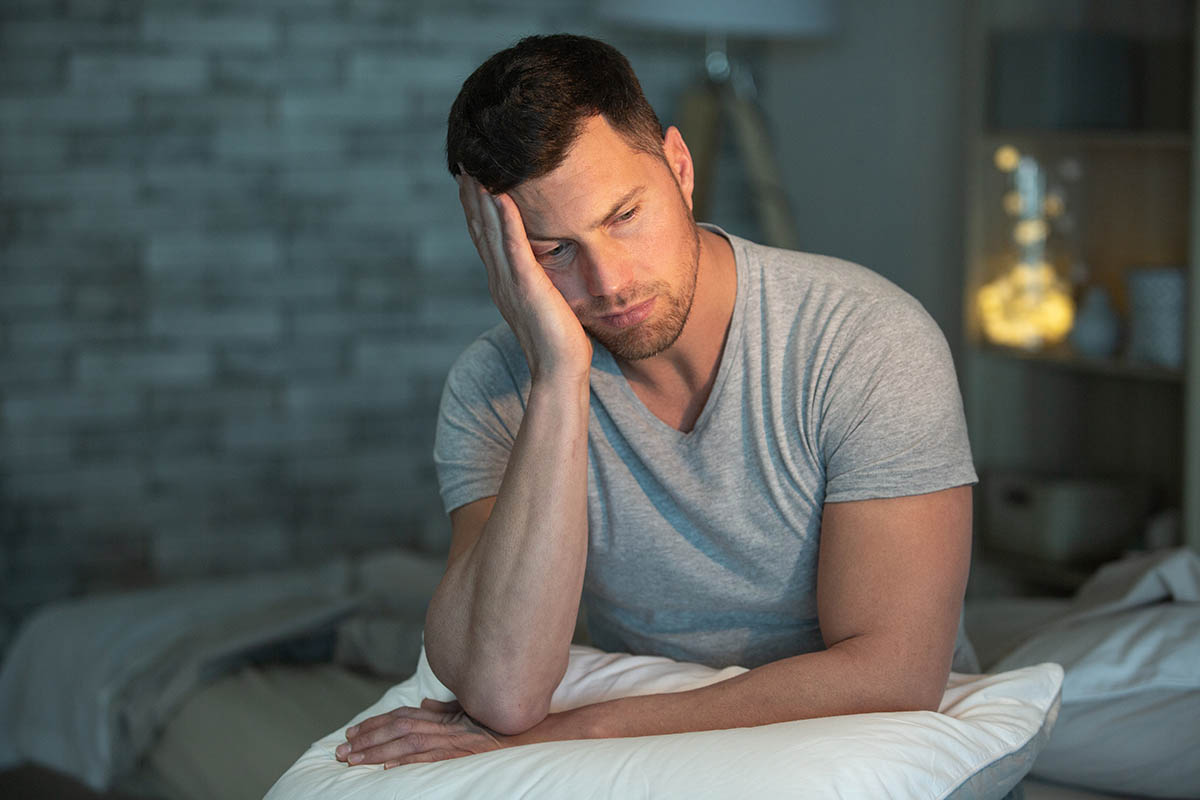What Happens to Your Brain After a Bad Night’s Sleep?

Crying babies, noisy neighbours, attempting to squeeze in one too many Netflix episodes – a bad night’s sleep can strike for any number of reasons. Yet no matter how many times you get burned by the clock, facing the day with sleep deprivation never gets easier, especially when you’re facing a schedule full of meetings and deadlines.
Just like diet and exercise, experts say that sleep is a major cornerstone for good health, allowing the brain and body to slow down and engage in the processes of repair and recovery.
These days, we know a lot about the benefits of sleep, but before the 1950s, it was generally considered to be a passive activity. It wasn’t until later breakthroughs in science that a fundamental shift in understanding sleep as an active and complex process happened, where parts of the brain that are crucial for memory, learning, and single-task focus are fired up and highly active.
While the odd night of staring at the ceiling fan is unlikely to do you any lasting harm, most of us know by now that a sudden lack of sleep can really throw you off kilter. Let’s take a look at what really happens to your brain when you skimp on those precious hours. And more importantly, discover a handful of science-backed tips on how best to recover in the aftermath.
You struggle with brain fog
After a night of tossing and turning, one of the major after-effects is a distinct lack of mental clarity. You’re sluggish, your thoughts are jumbled, and even the simplest email replies feel like a mammoth effort.
According to a review published in Nature Reviews Neuroscience, sleep deprivation causes brain fog because it disrupts the delicate neural connectivity between the prefrontal cortex and the amygdala; areas of the brain that are responsible for complex decision-making, attention, and working memory.
The trickle-down effects of this impairment include poor judgement and increased risk-taking behaviours – think making bad decisions at work or procrastinating on an important deadline.
Your short-term memory is impaired
There’s a reason why you’re always misplacing your house keys after a bad night’s sleep. Your hippocampus, the tiny brain region crucial for memory formation, takes a big hit when you’re short on rest. A study in the Journal of Neuroscience found that just a single night of poor sleep can reduce the hippocampus’s ability to perform synaptic plasticity – an essential maintenance process for memory consolidation.
Interestingly, it’s our freshest memories that are most likely to be affected. University of Michigan scientists found that when mice are sleep-deprived, there’s an increase in activity in inhibitory neurons in the hippocampus, sabotaging the process of storing new information. In this way, sleep loss can hinder new memory storage, explaining why pulling an all-nighter to cram facts before an exam rarely works.

Your emotions run high
Ever notice how everything seems a bit more overwhelming when you’re sleep-deprived? Your erratic moods and emotional outbursts are all thanks to the amygdala, the brain’s emotional centre, which goes into overdrive when you’re short on kip.
A review in the journal Neuroscience revealed that deprivation of sleep makes us more emotionally aroused and sensitive to stressful stimuli and events. This is because REM sleep and REM dreaming play a modulating function on our emotions experienced during the day, allowing our neural pathways to synchronise and work efficiently. Brain scans published by scientists from the University of California, Berkeley further revealed that just one sleepless night leads to a shutdown of the medial prefrontal cortex, an essential part of the brain for managing anxiety.
Unfortunately, when daily stress isn’t kept in check, it can snowball into bigger mental health problems and cause chronic sleep disturbances. In this way, it can be a double-edged sword: you feel stressed because you’re tired, and you’re tired because stress is keeping you awake.
You’re slower at picking up new skills
Brain plasticity is your brain’s ability to adapt, learn, and grow from experiences. Think of it as your mind’s version of a daily HIIT class, growing and strengthening new connections between neurons in each sleep session.
In a Swiss study, scientists tampered with a group of study participants’ deep, non-REM sleep after asking them to learn a dance routine. The scientists then monitored the participants’ brain activity in their motor cortex, finding that a restless deep sleep resulted in a sharp decrease in learning activity, making it more difficult to recall the steps.
The researchers explained that lack of sleep disrupts the building and maintenance of synapses, the tiny connections between neurons that facilitate the passing of information from one neuron to another. Because your synapses aren’t firing on all cylinders, your brain is less flexible and slower to adapt when you’ve pulled an all-nighter.
This phenomenon explains why you might struggle to complete basic tasks on low sleep, like following directions or making small talk with colleagues.
How to recover after a bad night’s sleep
The science is clear: a good night’s sleep is non-negotiable for a healthy brain. But if you’re already on the back foot, there’s a lot you can do to make the following day a bit easier when you’re woefully running low on sleep.

Open the curtains
When you’re tired, it’s tempting to open your laptop from bed, but research points to the benefits of natural light exposure; one 2009 study showed that sunlight helps reset your circadian rhythms and boosts your mood when you’re feeling zapped.
Pile on the protein
As well as getting out for a morning stroll, studies support pairing a walk with a healthy, protein-rich breakfast, which can provide sustained energy and stabilise blood sugar levels when you’re flagging. If you’ve snoozed your alarm as late as you can and are running short on time, grabbing a protein shake made with Form’s Performance Protein powder can ensure your levels are topped up throughout the day.
Get your H2O hit
Hydration is key, so don’t be tempted to mainline black coffee at your desk. Sip plenty of water to keep your brain functioning as optimally as it can, and try to avoid winding down with a post-work alcoholic tipple.

Throw in some movement
While exercise is probably the last thing you want to do when you’re tired, plenty of studies have revealed that movement, particularly LISS (low-intensity steady-state cardio) training, can increase endorphin levels and improve alertness without draining your already low energy reserves. Slower aerobic activities like walking, jogging, or cycling are all good options when you’re beat.
Nap it off
Lastly, if you’re really feeling rough, consider taking a short, strategic nap – around 20 to 30 minutes in the early afternoon – to boost your alertness without disrupting your nighttime sleep. If you think you might struggle to drift off again later, taking Form’s ZZZZs capsules, which are loaded with sleep-supporting nootropic ingredients, can set you up for a better night’s sleep and help you to get back on track.


















